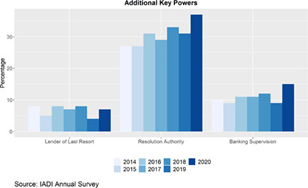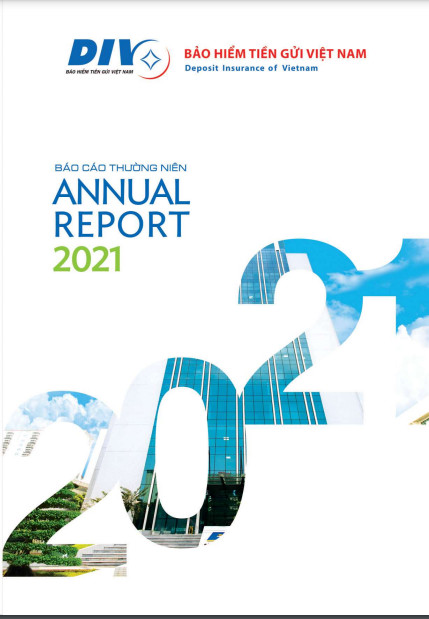On August 8, 2018, the Prime Minister issued Decision No. 986/QD-TTg, which approved the Strategy for the development of the Vietnamese banking sector to 2025, with a vision to 2030. This decision outlines specific tasks and solutions for the Deposit Insurance of Vietnam (DIV), including strengthening financial capacity, improving operational capacity, perfecting the organizational model, enhancing staff qualifications, and adopting modern technology to participate in the restructuring of weak credit institutions effectively.
On March 12, 2019, the Prime Minister issued Directive No. 06/CT-TTg on strengthening solutions to ensure operational safety and firmly consolidate the PCFs system. In Directive 06/CT-TTg, the Prime Minister stipulates:
Regarding the objectives and requirements: Promoting the role of DIV in linking the system, providing financial support and solving difficulties of the PCFs, enhancing the role of participation and supporting the examination and supervision functions of the State Bank of Vietnam (SBV) for the PCFs.
Regarding the tasks of the SBV: (i) Strengthening the role and assigning the task of DIV in coordinating participation and supporting the examination and supervision functions of the SBV for the PCFs; (ii) Studying and proposing amendments to the Law on deposit insurance (DI) to use the surplus funds of DI premiums to solve weak credit institutions.
On December 30, 2022, the Prime Minister issued Decision No. 1660/QD-TTg approving the Deposit Insurance Development Strategy to 2025 with orientations to 2030. Accordingly, the Strategy sets out the goal of "Strengthening the financial capacity of the deposit insurer to affirm the State's commitment and enhance the confidence of depositors in the deposit insurance policy." In addition, the Law on Credit Institutions 2024 has new provisions related to DI and deposit insurer. Accordingly, the tasks of the deposit insurer when participating in the early intervention process and the supervision of credit institutions are stipulated in the Law on Credit Institutions 2024, such as Participating in assessing the feasibility of recovery plans, plans for merger, consolidation, and transfer of all capital contributions of the PCFs; special lending to commercial banks (CBs), cooperative banks, PCFs, and Microfinance Institutions (MFIs) in accordance with the law on DI; purchase of long-term bonds of credit institutions that receive compulsory transfer of commercial banks according to the decision of the SBV; participate in developing bankruptcy plans for specially controlled credit institutions; coordinate with credit institutions to reimburse depositors' insured deposits according to the bankruptcy plan approved by competent authorities. With the contents stipulated in the Law on Credit Institutions 2024, new requirements are set forth in the implementation of the tasks of the DIV.
From the above contents, it can be seen that increasing the financial capacity and operational capacity of the deposit insurer (or specifically the DIV) is a necessary factor for the DIV to participate in the restructuring process of weak credit institutions effectively, especially the PCFs that are subject to long-term special supervision. This issue requires specific solutions and roadmaps to be developed in line with the new functions and tasks of the DIV as stipulated in the Law on Credit Institutions 2024. One of the prerequisites is the need for a legal framework for the DIV to have a basis for implementation.
First, the financial capacity of the DIV is understood as the ability to ensure financial resources for its operation and achievement of the set goals. Determining the financial capacity of the DIV is based on the elements constituting its operating capital.
Pursuant to the provisions of the Law on DI, Circular No. 312/2016/TT-BTC dated November 24, 2016 of the Ministry of Finance stipulating the financial regime for the DIV, amended and supplemented by Circular No. 20/2020/TT-BTC dated April 1, 2020, the operating capital of DIV includes 4 components, specifically: (1) Charter capital of VND 5,000 billion from the state budget and other legal capital sources; (2) Operational reserve fund formed from the following 6 sources: (i) Annual deposit insurance premiums revenue; (ii) Income from investment activities of temporarily idle capital after deducting a portion to cover operating costs; (iii) Unclaimed insurance proceeds; (iv) Remaining amount (if any) from liquidation of assets of insured institutions; (v) The remaining annual financial revenue and expenditure difference after setting aside the development investment fund and the reward and welfare fund; (vi) Income from special loans to credit institutions with special credit institutions; (3) Development investment fund; (4) Other capital including 5 types as follows: (i) Capital received support according to the provisions of the Law on DI; (ii) Legally sponsored capital from organizations, domestic and foreign individuals (if any); (iii) Differences due to revaluation of assets (if any); (iv) Differences in revenue and expenditure not yet allocated to funds (if any); (v) Other legal capital.
Thus, increasing the financial capacity of DIV is to increase resources from the above-mentioned capital sources. Without strong enough financial resources, DIV will face many difficulties in using resources to reimburse deposit insurance and participate in the restructuring process of weak credit institutions. Accordingly, some challenges are posed to improve the financial capacity of DIV as follows:
The total operating capital of DIV as of December 31, 2024, is VND 126,268.2 billion, equivalent to 1.37% of the total insured deposit balance (VND 9,116 trillion). The operational reserve fund is VND 119,418.5 billion, accounting for 94.6% of the total capital, equivalent to 1.3% of the total insured deposit balance. This capital is still modest compared to the scale of insured deposits and does not really meet practical requirements.
The ratio between total capital, operational reserve fund, and total insured deposits is still low, which affects the ability to reimburse when an incident occurs.
The capital supplement mechanism is not flexible, and there are no detailed implementation instructions. The deposit insurer's financial resources mainly come from deposit insurance premiums collection activities, but the accumulation rate is still limited compared to the banking system's growth rate. The mechanism for accessing support capital and loans in emergency cases does not have specific instructions on procedures for timely access to capital.
The mechanism for temporarily investing idle capital is not optimal: Investment tools are limited to almost only buying and holding government bonds and depositing money at the SBV. This is not flexible in balancing capital to perform the tasks of the deposit insurance. When money is needed to reimburse, the deposit insurer is almost unable to sell government bonds held at a time with a large volume of sales; the investment efficiency to develop capital has not been optimized.
To address the above-mentioned key challenges and promote the role of the DIV in the credit institution system, some recommended solutions are as follows:
First, perfecting the legal basis for implementation.
Currently, the draft Law on DI is being proposed to be added to the Legislative Program for 2025. It is expected to be included in the 10th Session Program, drafted according to the simplified procedure. The DIV is actively participating in coordinating with the Legal Department of the SBV to complete the dossier proposing the development of the Law on DI (amended). Some issues related to improving the financial capacity of the Law on DI (amended) are included in the policy proposing the development of the Law on DI (amended) as follows:
Policy on operating capital of the deposit insurer:
Amending and supplementing regulations on the operating capital of the deposit insurer, including (i) Charter capital of the deposit insurer provided by the Government, (ii) Loan capital, (iii) Operational reserve fund, (iv) Development investment fund, (v) Financial reserve fund; (vi) Other capital as prescribed by law.
Amending and supplementing regulations on financial, accounting, and auditing regimes of deposit insurer in the direction of (i) Clarifying the revenues and expenditures of deposit insurer; (ii) Regulations on negative revenue and expenditure differences due to deposit insurer using operating capital to reimburse insurance premiums to depositors in accordance with the Law on DI, participating in the early intervention process, and special controlled of insured institutions; (iii) The Government shall specify in detail the financial regime of deposit insurer.
Policy on investment activities of the deposit insurer
Amend and supplement the regulations allowing DIV to add some activities to the investment portfolio from operating capital in a similar direction to the investment portfolio of the Vietnam Social Security: Deposit insurer is allowed to use temporarily idle capital to buy and sell government bonds, local government bonds, and SBV bills; buy and sell bonds and deposit certificates issued by state-owned commercial banks and joint-stock commercial banks with over 50% state capital; deposit money at the SBV, state-owned commercial banks and joint-stock commercial banks with over 50% state capital.
Add regulations to limit risks in the investment activities of the deposit insurer, such as (i) Regulations on the responsibilities of the deposit insurance organization in carrying out investment activities, making provisions for risks for investments according to the Government's instructions; The Government shall prescribe the procedures for controlling, managing risks, setting aside and using risk reserves; (ii) Assigning the Government to prescribe criteria for investment portfolios, investment structures, and investment methods.
Supplementing regulations on the deposit insurer purchasing long-term bonds of credit institutions receiving compulsory transfers according to the decision of the SBV.
Second, accessing foreign support capital and borrowing in emergency cases to reimburse deposit insurance
The Government has issued regulations on the mechanism for accessing support capital and borrowing in emergency cases to reimburse deposit insurance, but there are no specific instructions for implementation. Therefore, clear regulations, plans, processes, and procedures on the mechanism for supplementing capital for deposit insurer in emergency cases are necessary. Allowing deposit insurers to access support capital from the SBV will help strengthen their financial capacity to prepare for responding to and handling risks and incidents.
Strengthening cooperation private sector: The Vietnamese Government is paying attention to the private sector's role and financial resources. It is encouraging public-private partnerships (PPP) to promote the private sector's role in the economy and mobilize financial resources. In the context of decreasing capital funding sources from international financial institutions, the Vietnamese Government has been tightening public spending and reducing ODA loans since Vietnam became a middle-income country.
In the new situation, DIV will research cooperation with the private sector, state-owned commercial banks participating in capital contribution, private capital commercial banks, and private financial institutions based on the principle of mutual benefit within the legal framework, helping to reduce the financial burden on the Government budget.
Third, applying modern information technology and digital transformation in financial management.
DIV has been and continues to promote the application of modern information technology and digital transformation in financial management, synchronously connecting with the Government management system and credit institutions to improve efficiency, save costs, and shorten processing time in financial management.
Fourth, proactively, actively, and innovatively promote international cooperation and global integration.
DIV proactively and actively participates more deeply in international financial issues, learning from experiences in resolving financial failures and crises. Diversifying forms of cooperation, methods of cooperation, learning, and exchanging international experiences helps DIV increasingly improve its professional capacity and professionalism in financial management, gradually develop rapidly and sustainably, and enhance its role and position in the credit institutions system.
Research and propose that the DIV borrow capital from multilateral financial institutions, borrowing plans to pay for emergencies, avoid system collapse, and prevent mass withdrawals.
Thus, improving the financial capacity of the deposit insurer not only helps better protect the legitimate rights and interests of depositors but also contributes to maintaining the stability and sustainable development of the national financial system. In the context of an increasingly stable economy, strengthening the financial capacity of the deposit insurer becomes an urgent task, requiring close coordination between state management agencies and the deposit insurer to build a strong and safe financial system.
Communication Department



























